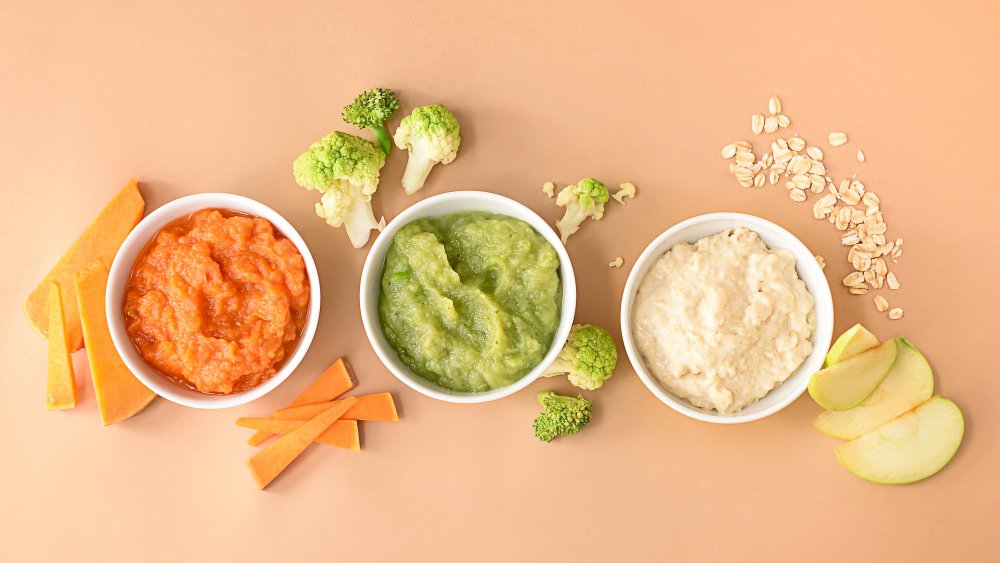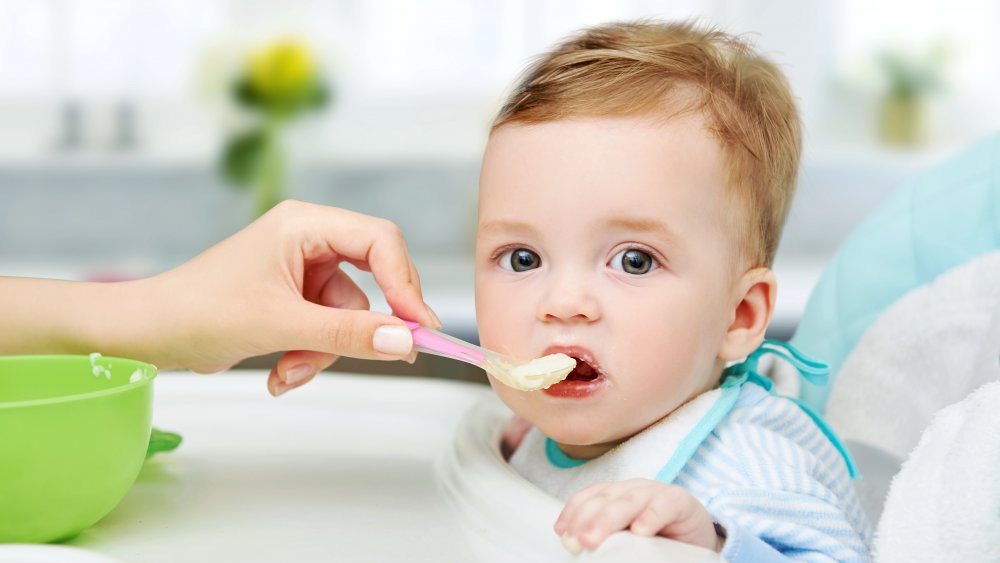The Biggest Mistakes You Can Make With Homemade Baby Food
Getting to the stage when your baby is ready for food other than breast milk or formula can be daunting. According to the National Institue of Child Health and Human Development, this often occurs around the 6-month point, and it's exactly when new parents need to be prepared to test out their cooking skills and start whipping up their own baby food at home if they aren't into store-bought varieties.
Luckily, Gill Rapley, a breastfeeding counselor and former midwife, has come to the rescue to let us in on exactly what you should — and shouldn't — be doing when it comes to homemade baby food, and more specifically, the biggest mistakes you can make.
Don't puree everything
According to Rapley, the first mistake parents tend to make with homemade baby food is not introducing it to their children when they should (via The Guardian). Never try and get your baby to eat anything solid before 6 months, as their bodies will not be ready for it.
Secondly, don't feed them in any position other than upright. Make use of that expensive high chair you got gifted at your baby shower to avoid choking. Also, don't get obsessed with pureeing all the food and spoon-feeding. "Babies need pieces of food that are big enough for them to hold in their fists," Rapley told The Guardian.
Always eat at the same time as your baby
Another common mistake that Rapley points out is eating separately from your baby. "Eating with people will ensure babies learn more than just how to handle food — they'll learn about taking turns, conversation, and table manners," she revealed to The Guardian. "Treat them with the same respect you would any other mealtime companion."
And if you're having trouble getting your baby to eat your homemade food? Have fun! "In the early days, when your baby is first moving from milk feeds to proper food, mealtimes are more about fun than about eating," Rapley explained. "Your baby will be getting enough nourishment from milk feeds. Food, at this stage, is almost a rehearsal for 'real' eating, and what you want to get across more than anything is a sense of enjoyment. As far as your child is concerned, food is there to be experimented with, played with, and investigated. And also, of course, to be tasted."


